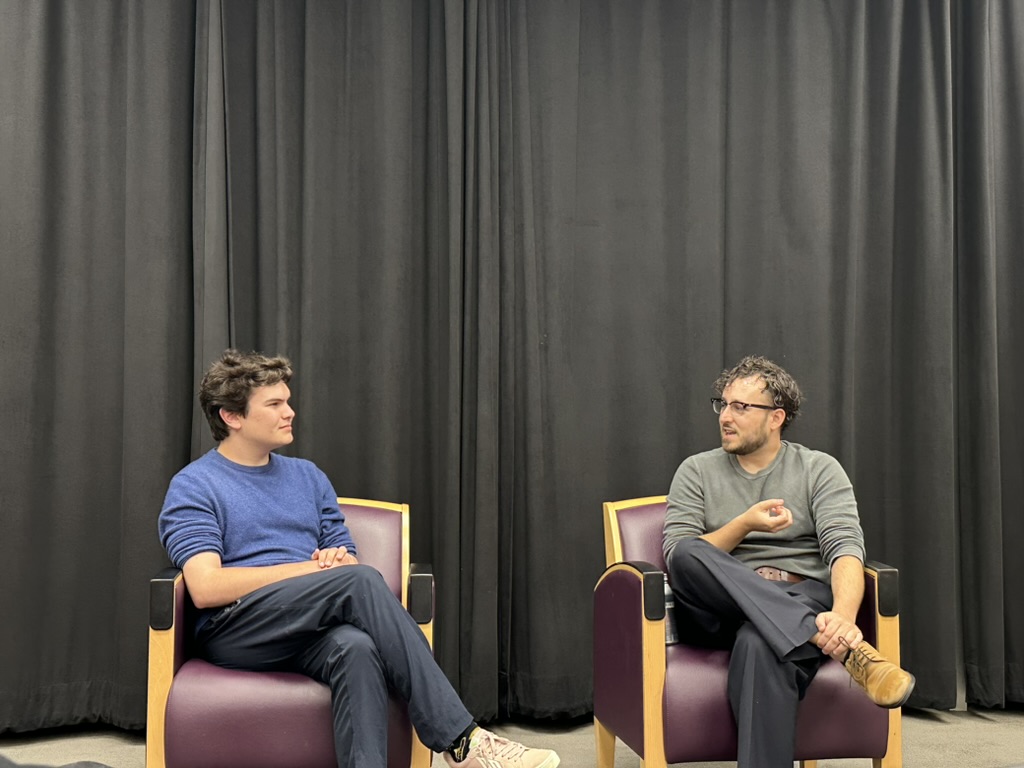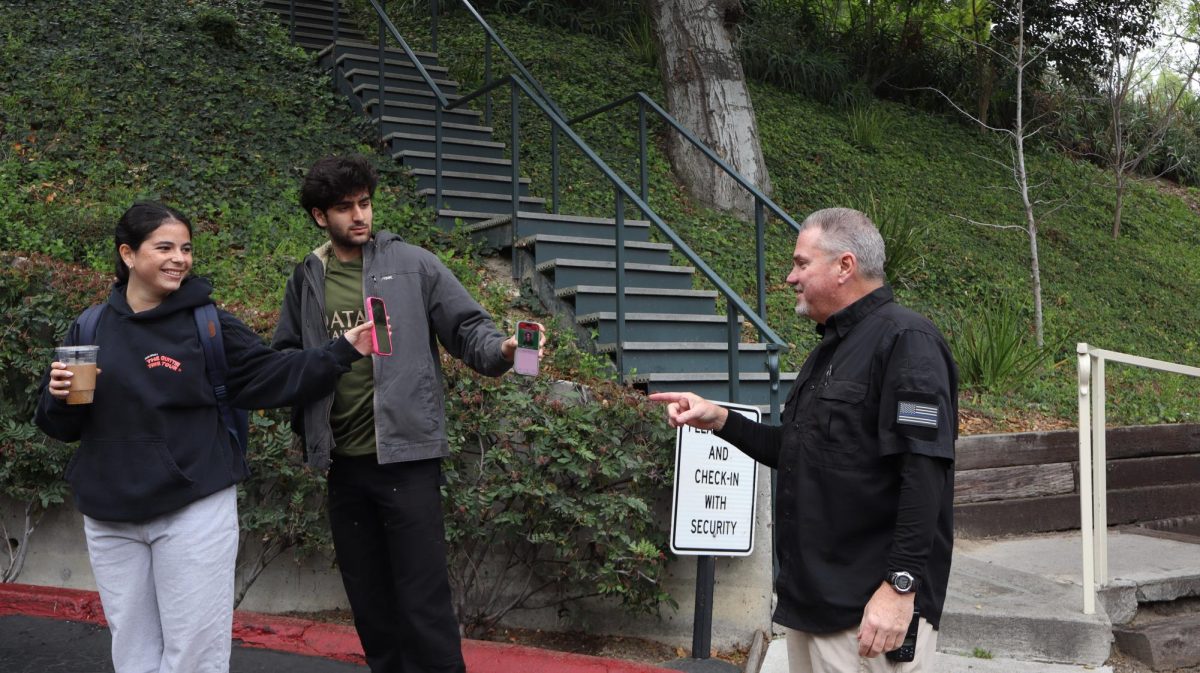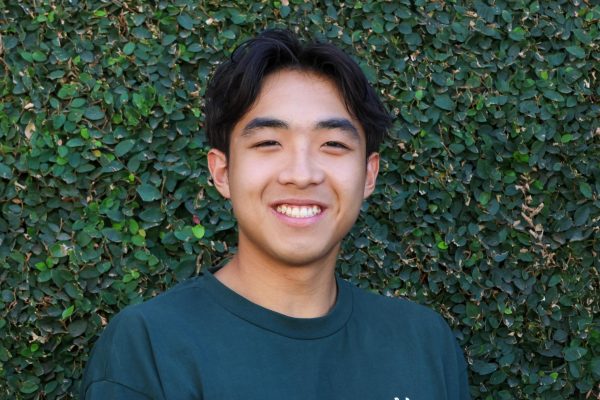Playwright Will Arbery spoke to students in the American Playwrights class in Ahmanson Hall on May 10. In 2020, Arbery was a Pulitzer Prize finalist for writing Heroes of the Fourth Turning. The class, taught by Dean Adam Howard ’93 and Performing Arts Teacher Sabrina Washburn, read and discussed the play before reaching out to Arbery to reflect on his writing process.
Arbery said he chose to write Heroes of the Fourth Turning as a play rather than a film because it created a more immersive viewing environment.
“The experience of sitting there and not being able to turn [the play] off was important to me,” Arbery said. “It’s more dramatic. Going to a play is so much more an experience. I really wanted to make it seem like a small slice of land in Wyoming appeared on this New York stage. We were [performing] it on 42nd Street, so when they walked out, they were in Times Square. We wanted to create this space that felt almost impossible nand a miracle that they had access to it. It just wouldn’t have been the same in film.”
The play centers around the drama of four alumni—Emily, Justin, Kevin and Teresa—at a conservative Catholic college in Wyoming. While attending a reunion at the college, the former students engage in theological and political conversation. Midway through the play, a newly selected college president is introduced and begins to challenge the younger characters’ varied political beliefs.
Arbery said although he had always planned for the play to focus on this core group’s political philosophies, he also wanted to emphasize their deeper connections.
“It definitely got more precise,” Arbery said. “There are so many debates in this play to the point where the personal history between the characters can seem almost like an afterthought, but I think they’re actually the most important thing. That’s why they’re arguing with each other. It’s a form of working out these long-standing dynamics that are still unresolved.”
Washburn said it is insightful to hear about the personal writing decisions behind a play.
“I think [Arbery’s presentation] gives greater context to the work that we’re doing,” Washburn said. “[Plays] aren’t just books. These are live acts, and not only that, but they are alive and being as well. It’s not just about reading something but hearing how it came to be in the first place.”
Arbery said he attempted to highlight both liberal and conservative viewpoints in the play.
“It was intended for a liberal audience, but it also was important to me to accurately reflect conservative Catholic viewpoints,” Arbery said. “I wanted both to see it, and I wanted the play to be performed throughout the whole country and for those communities to wrestle with it as well. It’s completely fine to disagree with people, but you should know what you’re specifically disagreeing with.”
Ian Kim ’24 said he felt more connected with Arbery after talking with him due to their common experiences in writing plays.
“He’s done all this [writing] but having him come in and have this really intimate conversation [allows] you get to know [Arbery] on a more personal level,” Kim said. “I have felt a lot of the same struggles in my playwriting that he talked about feeling in his playwriting. It felt like we are in the same community, and he’s not just like talking to us.”































